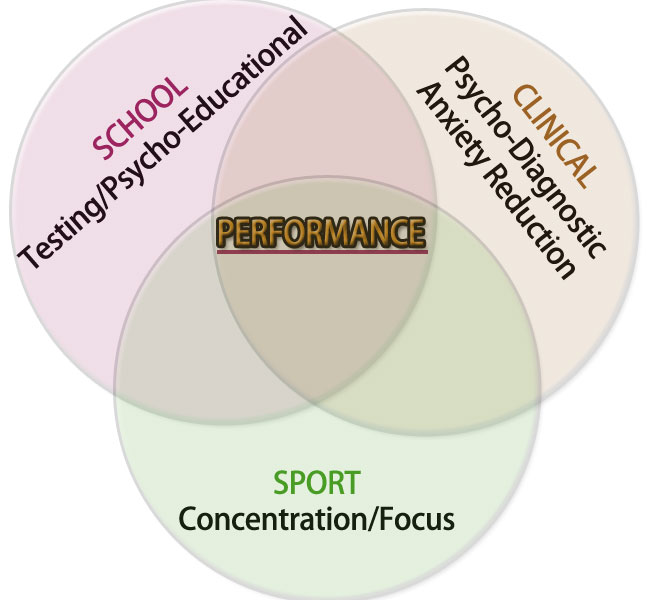The Development of New Jersey Clinical & Sport Psychology
The Common Denominator Is Performance.
School: As a motivated student, I had always been interested in increasing academic performance. This led to my pursuit of a Academic degree in higher education. My doctoral program at Hofstra University was a combined program in Clinical and School Psychology. A significant portion of my training was based on psycho-educational and psycho-diagnostic testing. The first two years of my program taught me how to assess children and adolescents for giftedness and learning disabilities. At either end of the spectrum, I was learning how to formulate questions, gather data, and make informed decisions based upon data. I learned there were very few “constants” to learning. It was a fluid process that varied based upon the learner, the task, and the situational demands.
Clinical: As for the clinical portion of my training, I took a special interest in the assessment and treatment of anxiety disorders. More specifically, I wanted to learn how an individual could learn reduce his/her own level of anxiety in any given situation. My investigation lead to a Masters’ thesis working with spider phobia. My Doctoral dissertation examined a more complex and universal fear, public speaking anxiety. As public speaking anxiety had the highest prevalence rate among all fears, I viewed it as a more mainstream fear.
Observations
1) All people, clinical and non-clinical, experienced similar distress over the task of public speaking.
2) Even people who enjoyed public speaking had the same physical sensations as people in distress.
Conclusion:
1) Everyone benefited from intervention. It all depended on their perception of fear (how they viewed it).
2) Some people labeled these sensations as fear when giving a public speech; whereas, others labeled their sensations as a way to “ready” themselves or “psych” themselves up for their public speaking task.
3) Public speaking was a demanding performance based task for everyone.
Sport: Sport psychology had always been an area of interest at an early age. I was asking questions such as, “Are champions born or created” (nature versus nurture). I had always been actively involved and benefited greatly from exercise and participation in sports, both individual and team. I began playing golf seriously. To me, it was a mental game that was never mastered but played. I saw a great benefit to increasing the mental skills of concentration, and relaxation when placed in competitive high-pressure situations. This seemed to apply to other sports I participated in throughout my life. I began to see how performance in sport and life were interrelated. This led to my study of the psychology of excellence. I became interested in what made people successful and obtain peak performance. The Association for Applied Sport Psychology (AASP) and American Psychological Association Division 47: Exercise and Sport Psychology provided a solid base in the application of psychological techniques in Sport and Performance Psychology.
My practice strives to integrate scientifically based principles grounded in quantitative and qualitative analysis. I try to use what works based upon the specific person, task, and demands. I formulated a practice based upon my own personal philosophy: to perform to the best of my ability in work/school, sport, and in the social/emotional part of my life. Each area represents a specific area of functioning in life that complements the other.
School: If you want to be a better worker/student, let’s break the task down into its simplest components and formulate an plan that fits you as a student/worker.
Clinical: If there is an obstacle in your life, let’s begin to understand it. Together, we can restore your emotional and behavioral well being.
Sport: If you want to perform better in your sport. Let’s assess what mental skills are necessary to take your game to the next level.
This page will be devoted to studies and frequently asked questions that relate to the areas listed above.
